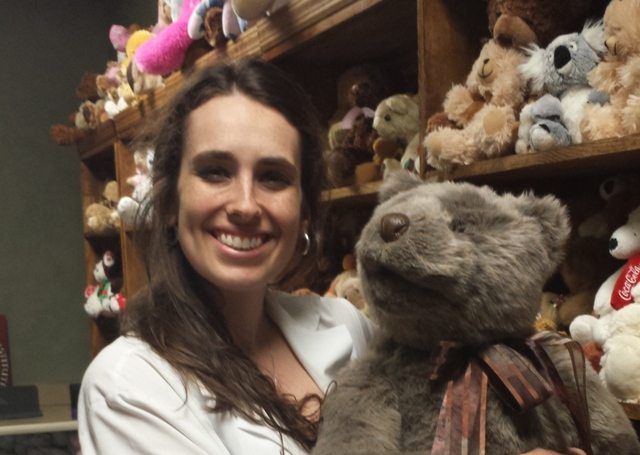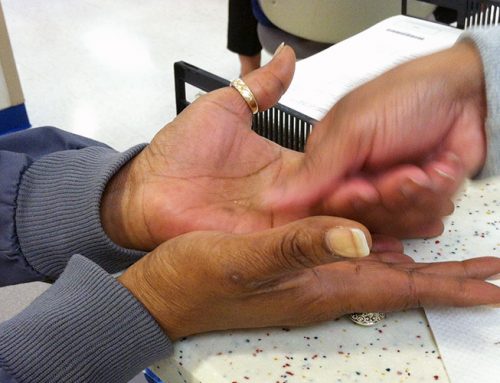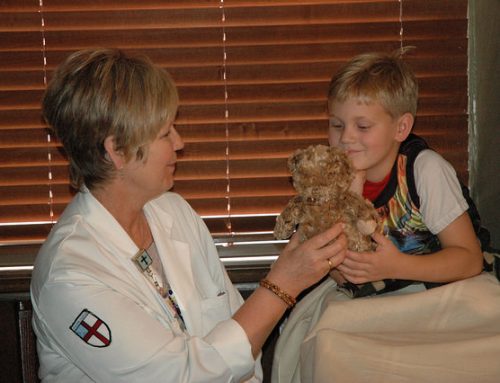“The first duty of love is to listen.” – Paul Tillich
The concept, if not the practice, of love is foundational in most, if not all, religious and spiritual traditions. As a Buddhist living and working in a predominantly Christian environment this past year, love has been a point of connection and a place of common ground. So, what does it mean to practice love?
I began my internship at Bishop Anderson House 10 months ago as a Julian Year Chaplain Intern. As a Julian, I live in an intentional community founded on principles of respect, compassion, and social justice. One of the vows we took at the beginning of the year was “to walk out love.” Over time, this has morphed from a lovely, but abstract, commitment into a challenging, messy discipline. Reflecting on Tillich’s dictum, I see how the work that I engage in as a chaplain has been a key part of shaping and mobilizing this lived ethic of love.
As a chaplain, I listen. Hearing a story, holding a hand in prayer, silently sitting by a bedside, blessing a child’s medicine— these are all ways of listening. To truly listen requires that I let go of myself and my agendas and seek to be completely with the other—wherever, however, whoever they are. Part of the challenge in doing this comes from my habit of following two powerful cultural messages: first, hurry up and, second, avoid pain, whether it’s mine or someone else’s. During a meditation retreat this year, I began to suspect that the first message of busy-ness might be a response to the underlying fear of being with pain. On the cushion, there is nowhere to go and nowhere to hide when unpleasant feelings or emotions arise. The only task is to watch and to listen, without judgment and with loving-kindness. Similarly, as a chaplain, my purpose is to accompany the person in front of me through whatever they are experiencing, not to fix or to judge. It is a reaction not of pity but of empathy and requires diving into places of loss, fear, hope, and grief, where things are unexpected and unpredictable. For me, the foundation of pastoral care is this sacred “showing up,” completely and authentically, to another person. When we listen with our hearts not just with our minds, with our full beings not just with our ears, we are forced to turn toward rather than away from suffering.
Often, this suffering is connected to larger systems of violence and oppression. During the Julian Year, we examine systemic abuses of power that aggravate homelessness, violence, hunger, and racial injustice. As a chaplain intern at the Cook County Hospital and at Warren Barr Pavilion, I witness how each injustice has real stories, real suffering, and real resilience in its grasp. At Cook County Hospital, I encounter the gripping anxiety of the uninsured, hold stories of repeated gun violence, and accompany patients as they question how they will be able to care for their minds and bodies once they leave the hospital bed. At Warren Barr Pavilion, I am present with the elders of our community, many of whom have no one to slow down with them, no one to visit them, and no one to sit with them in their pain or in their joy.
Understanding systemic suffering cannot happen without stories. The act of listening is also an act of power. The community organizing training I have done this year as a Julian has helped me to see how Bishop Anderson House’s work with United Power and its outreach to parishes and communities in the greater Chicago area connect chaplaincy to wider social change. With the Lay Chaplain Training Program, I see that we are not only training people to be volunteer pastoral caregivers but also we are contributing to the creation of a culture in which more people care for one another, more people listen, and more people refuse to turn away from suffering, both personal and communal.
I am constantly inspired by the work of Bishop Anderson House and feel infinitely blessed to have been able to learn from Cherryl, Laurie, Ann, and Jay over this year. I am deeply grateful for the experiences that I have had, from the completion of CPE to the opportunity to introduce LGBT competency to our training program. There were certainly growing pains. What I learned this year has required a lot of discomfort, a lot of tears, and a lot of sleep. I had to learn not only how to take care of others but also how to take care of myself. I have grown personally, spiritually, and professionally, and have had to dive more deeply into the messiness of human experience than perhaps ever before.
At times, when I listen with my heart it feels like my heart is breaking. However, it is breaking open. Being fully present is a great act of love. It takes courage for both the “listener” and the speaker. It requires that we go into spaces of fear and of suffering, of joy and of hope, and simply be present with whatever is there, within us and within the room. Not running away and not looking for the silver lining means accompanying someone in a journey that often the rest of the world has abandoned them to walk alone.
I will close with the offering of a prayer from the Buddhist tradition:
May you be well.
May you be happy.
May you abide in peace.
May you feel safe and secure.
May you feel loved and cared for.
May all beings be well.
May all beings be happy.
May all beings abide in peace.
May all beings feel safe and secure.
May all beings feel loved and cared for.







Leave A Comment